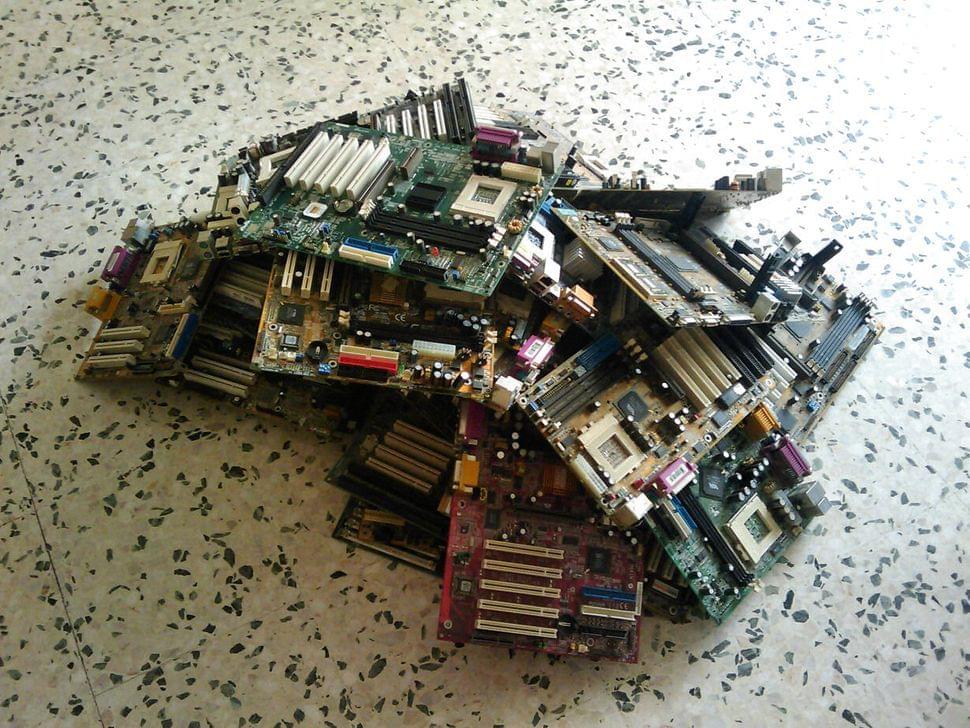Recycling previous metals from electronic waste is very expensive and, at a large scale, often requires exorbitant amounts of power and very expensive machines to recycle efficiently. However, scientists have discovered a food byproduct, whey protein, capable of recovering gold from electronic waste, making the recycling process substantially more efficient than it once was. With this byproduct, the energy cost of the entire recycling process can be 50 times lower than the value of the gold extracted from electronic components. The team found they could extract around 450mg of gold from 20 motherboards using this method.
This magical organic material comes in the form of whey proteins, a byproduct of dairy. Scientist Raffaele Mezzenga from the Department of Health Sciences and Technology discovered that an organic sponge made from whey proteins is exceptionally good at extracting metals from electronic components. To make this sponge, the scientists denature whey proteins under an acidic bath and high temperatures so the substance turns into a gel. Then, the scientists dry the gel, creating a sponge out of the whey protein fibrils.
But before the sponge can be used, the electronic waste must be prepared so it can do its job. First, electronic waste is dissolved in an acid bath to ionize the metals; then, the sponge is placed in the metal ion solution. Once in the bath, the ionized metals attach to the protein sponge, like a magnet picking up metal shavings. Mezzenga and his team of scientists discovered that most metal ions can adhere to the sponge, but gold ions do so a lot more efficiently.
